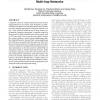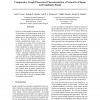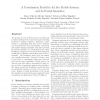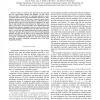27 search results - page 4 / 6 » Folksonomy-based reasoning in opportunistic networks |
SECON
2008
IEEE
14 years 5 days ago
2008
IEEE
Congestion control in wireless multi-hop networks is challenging because of two reasons. First, broadcast is an inherent feature of wireless networks and motivates many creative p...
CEAS
2005
Springer
13 years 11 months ago
2005
Springer
Email is an increasingly important and ubiquitous means of communication, both facilitating contact between individuals and enabling rises in the productivity of organizations. Ho...
EUROPAR
2003
Springer
13 years 11 months ago
2003
Springer
The growing success of wireless ad hoc networks and portable hardware devices presents many interesting problems to software engineers. Particular, coordination is a challenging t...
ICC
2008
IEEE
14 years 7 days ago
2008
IEEE
— TCP-friendly rate control (TFRC) is a congestion control technique that trade-offs responsiveness to the network conditions for a smoother throughput variation. We take advanta...
ICC
2007
IEEE
14 years 3 days ago
2007
IEEE
— There is a need for new spectrum access protocols that are opportunistic, flexible and efficient, yet fair. Game theory provides a framework for analyzing spectrum access, a ...




